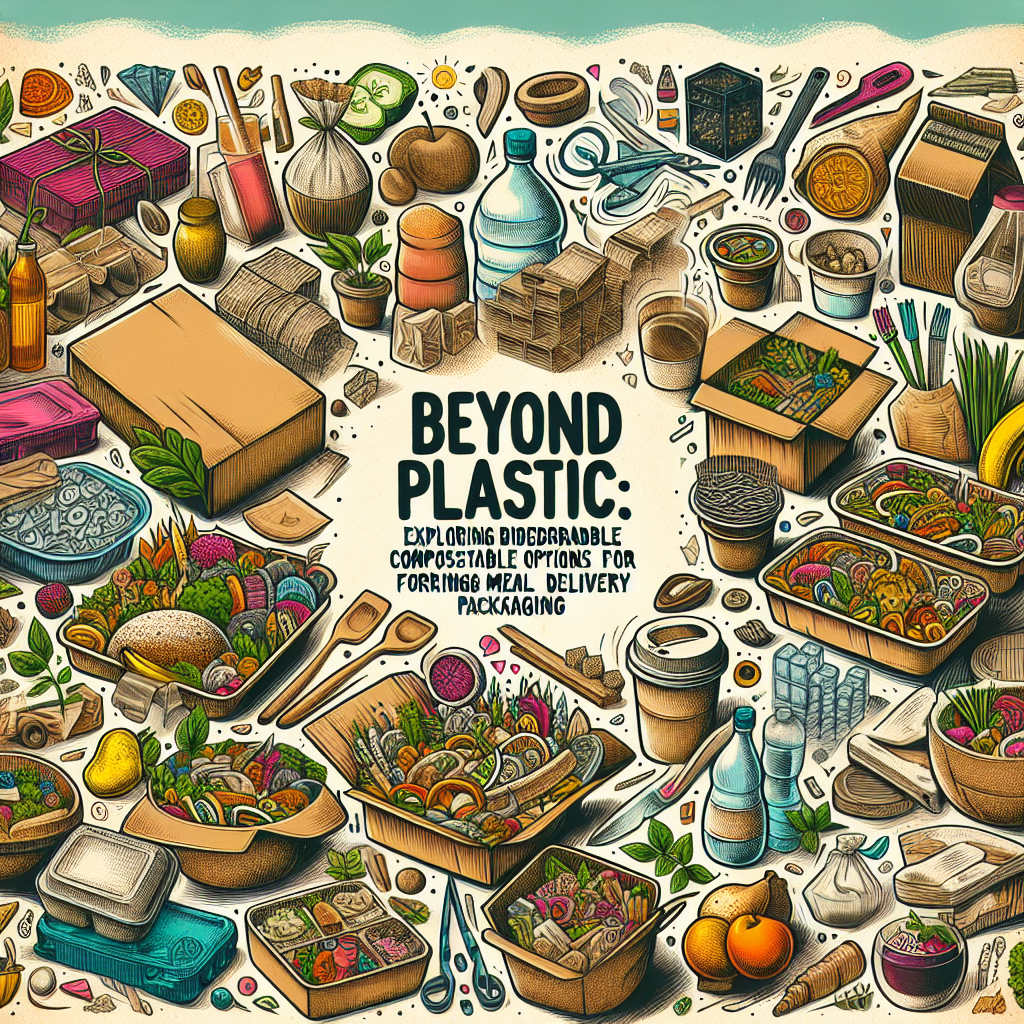As consumers become increasingly aware of the environmental impacts of plastic waste, the demand for sustainable alternatives is on the rise—especially in the meal delivery sector. With millions of consumers relying on meal kits for convenience, it’s crucial to explore biodegradable and compostable packaging options that not only meet the needs of modern lifestyles but also help protect our planet. In this article, we’ll delve into the world of sustainable meal delivery packaging and explore how these innovations are shaping our relationship with food and the environment.
Understanding Biodegradable and Compostable Packaging
What Does "Biodegradable" Mean?
Biodegradable materials can break down naturally through biological processes, thereby returning to the earth without leaving harmful residues. This breakdown typically occurs within a specific timeframe, significantly shorter than traditional plastics. Examples of biodegradable materials include paper, certain bioplastics, and some natural fibers.
The Meaning of "Compostable"
Compostable materials go a step further by breaking down into nutrient-rich compost under specific conditions. To be labeled compostable, materials must decompose in a way that supports soil health and does not introduce toxins. This breakdown can happen in home composting setups or commercial composting facilities. Common compostable materials include plant-based plastics, cornstarch-based containers, and brown paper bags.
The Shift from Conventional Plastics to Sustainable Solutions
The Problem with Traditional Plastics
Traditional plastic packaging is a significant contributor to environmental degradation. With millions of tons of plastic waste generated every year, the burden on our landfills, oceans, and wildlife is alarming. As awareness grows, meal delivery companies are facing increasing pressure to innovate and adopt greener alternatives that minimize their environmental footprint.
Rise of Biodegradable and Compostable Packaging in Meal Delivery
In response to consumer demands, many meal delivery services have started to implement biodegradable and compostable packaging solutions. These options not only help reduce waste but also resonate with eco-conscious customers looking to make responsible choices.
Innovative Materials Leading the Charge
Plant-Based Plastics
Plant-based plastics, made from renewable resources like corn, sugarcane, or potato starch, are gaining popularity as a sustainable alternative to conventional plastic. These materials can often be composted, making them an ideal choice for meal delivery packaging.
Mushroom-Based Packaging
In an exciting twist, companies are exploring biodegradable packaging made from mycelium, the root structure of mushrooms. This innovative solution is not only fully compostable but is also lightweight and provides excellent cushioning—perfect for safeguarding your delicious meal during transit.
Seaweed Packaging
Another remarkable development in sustainable packaging is seaweed-based solutions. Utilizing a renewable resource that grows quickly, seaweed packaging is fully compostable and biodegradable, making it an eco-friendly yet functional choice for meal delivery services.
The Benefits of Sustainable Meal Packaging
Environmental Impact
Choosing biodegradable and compostable packaging can significantly reduce the environmental impact associated with traditional packaging materials. By decreasing reliance on fossil-fuel-based plastics, companies contribute to lower greenhouse gas emissions and waste accumulation.
Enhancing Customer Loyalty
As consumers become more eco-conscious, companies that adopt sustainable practices often experience increased customer loyalty. By prioritizing environmentally friendly packaging, meal delivery services can build a reputation as a responsible choice in a crowded market.
Promoting a Circular Economy
Sustainable packaging solutions align perfectly with the principles of a circular economy, which emphasizes reusing and recycling materials. By utilizing biodegradable and compostable options, companies play a critical role in promoting sustainability and reducing waste in the food system.
How to Make the Right Choices
Researching Meal Delivery Services
When selecting a meal delivery service, take the time to research their packaging practices. Look for companies that are transparent about their sustainability initiatives and offer biodegradable or compostable packaging options.
Making Small Changes at Home
Even if you’re not ordering meal kits, you can adopt sustainable practices in your kitchen. Opt for compostable bags and biodegradable containers when prepping meals at home, and explore local composting programs to lessen your food-related waste.
Final Thoughts: Towards a Greener Future
The journey towards a sustainable future in meal delivery packaging is underway, illuminated by the potential of biodegradable and compostable materials. By making informed choices and supporting companies that prioritize the environment, we can each play a part in reducing plastic waste and promoting a healthier planet. As the meal delivery sector evolves, embracing sustainable alternatives highlights our collective responsibility to care for our environment and future generations. Together, we can move beyond plastic and foster a more sustainable food culture.


